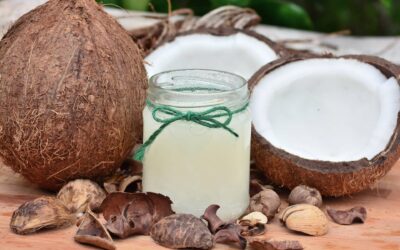The coconut which is also considered the “tree of life” in the Asia Pacific region is also being accepted in the global market and among health enthusiasts as a “superfood.” The nutritious copra (white flesh) found in the coconut is widely used for the production of coconut juice, milk, cream, and the coconut oil.
As many are shifting towards healthy lifestyles, and most interestingly, the switch in eating habits towards organic and natural, coconut oil has been the choice of oil for many. The oil has been gaining more popularity amongst other vegetable oils as more benefits of the oil are being discovered. Besides recent discoveries, health enthusiasts are pushing the benefits of the oil, and celebrities on their part are lifting the oil through celebrity endorsements.
In the US, 72% of the people consider coconut oil as a healthy food, alongside 37% of nutrition experts. The market for virgin coconut oil is expected to grow at about a 10.04% cumulative annual growth rate from the time period of 2020 to 2027. The market was valued at $1,250 million as of 2019 and is expected to reflect a value of $2,870 million by the year 2027.
Usage of Coconut Oil and its effect on Global Import
Due to the outstanding health benefits of coconut oil, the oil has been widely accepted in the food, cosmetics, and pharmaceutical industry thereby increasing global demand and import of the oil. In the food industry, the oil can be easily used to safely prepare healthy meals due to its high smoke point. Vegetable oils with low smoke points can lose their nutritional values and tastes under high temperatures (1). The oil also adds to a healthy homemade salad dressing, healthy homemade mayonnaise, and is used in numerous ice cream parlors for its flavor and most importantly, its health benefits.
The oil is also widely accepted in the food industry as it helps to burn belly fat (2)(3)(4), decrease hunger and food intake, and also acts as a quick source of energy which is due to the MCTs (Medium Chain Triglyceride)found in the Oil (5)(6)(7). From coconut oil, MCT oils can be produced which is now one of the most popular oils today.
In the cosmetic industry, the oil is widely used for skin products as coconut oil is well known to contain high antimicrobial properties. The oil is used to protect the skin from UV rays (8), relieve skin irritations and conditions like eczema (9) (10), moisturize the skin, and protect the hair from damage (11). With all these benefits, many cosmetic producers use coconut oil in their hair and skin products.
In the Pharmaceutical industry, the oil is used in the production of medications as the oil contains anti-inflammatory properties and is well known to improve our metabolism due to the presence of MCTs (12)(13), improve our dental health (14)(15), enhance brain functionality (16), fight against infections like intestinal infections and yeast, (17)(18) and helps with wound healing (19) and boost our bone health (20)(21)
Major Exporters of coconut Oil as of 2020
The top exporters of coconut oil (Coconut oil and its fractions, whether or not refined, but not chemically modified and excluding crude) are Indonesia, Netherlands, Philippines, Malaysia with a combined market share of over 79%. Indonesia is at the top with a 25.5% market share, pushing the Philippines (top exporter as of 2019) to the third position. The Netherlands comes in at the second position with a market share of 20.2% followed by the Philippines with a 20.1% market share. At the fourth position is Malaysia with 13.7% of global import market share value.
Top 10 global Importers of coconut oil As of 2020
The following list is for the importation of Coconut oil and its fractions, whether or not refined, but not chemically modified and excluding crude.
| Country | Value Imported in 2020 (USD thousand) | Trade balance in 2020 (USD thousand) | Quantity Imported in 2020 | Quantity Unit | Annual growth in value 2019-2020 (%) | Share in world Imports (%) |
| United States | 368,535 | -328,143 | 265,616 | Tons | -8 | 28 |
| China | 149,860 | -149,645 | 158,935 | Tons | -1 | 11.4 |
| Germany | 70,654 | -50,296 | 60,853 | Tons | 7 | 5.4 |
| Korea Republic | 50,585 | -50,533 | 48,135 | Tons | 3 | 3.8 |
| Belgium | 47,965 | -43,352 | 40,870 | Tons | -1 | 3.6 |
| Sri Lanka | 47,799 | -36,365 | 40,902 | Tons | 2,290 | 3.6 |
| Japan | 41,494 | -41,454 | 37,087 | Tons | 11 | 3.2 |
| France | 38,186 | -28,523 | 29,889 | Tons | 5 | 2.9 |
| Canada | 37,051 | -12,028 | 19,675 | Tons | -18 | 2.8 |
| Poland | 32,097 | -28,376 | 27,246 | Tons | 16 | 2.4 |
The United States
As of 2020, the United States still stands as the world’s largest importer of coconut oil. The United States imported more than 265 thousand tons of coconut oil, with an import value of approximately US$368.5 million. The United States currently accounts for approximately 28% of the world’s coconut oil imports. This is a significant drop compared to the market share of 30.5% as of 2019 which indicates a fall of annual growth in value between 2019-2020 of -8%.
In 2019, the United States imported over 301 thousand tons of coconut oil with a market value of $398.9 million USD. This significant drop can be attributed to the increase in the production of coconut oil in the United States and the emergence of new players like Poland in the imports of coconut oil.
China
At the second position of world import of coconut oil, still is China with a market share of 11.4%, importing over 158 thousand tons with an import market value of $149.8 million USD. This indicates a -1% annual growth in value between 2019-2020. In 2019, china held an import market share of 11.6% (0.2% drop) share of the world market and imported over 167 thousand tons of coconut oil with a market value of $151.3 million USD.
Germany
Germany still maintains its position as the third-largest importer of coconut oil with a market share of 5.4% with an import value of $70.6 million USD and imported over 60 thousand tons of coconut oil. In 2019 Germany controlled an import market share of 5%, with an import value of $65.7 million, and imported over 58 thousand tons of coconut oil. As of 2020, Germany has experienced an annual growth rate of 7%.
Republic of Korea
The Republic of Korea maintains its fourth position with an import value of $50.5 million USD by importing over 48 thousand tons of coconut oil securing an import market share value of 3.8%. In the previous year of 2019, the Republic of Korea imported over 56 thousand tons of coconut oil, with an import value of $48.9 million USD with an import market share of 3.7%. This change can be attributed to an increase in the average price per ton of coconut oil from $864.8 to $1051 and an annual growth rate of 3% between 2019-2020.
Belgium
Belgium maintains its spot as the fifth top importer of coconut oil with a market share of 3.6% and importing over 40 thousand tons of coconut oil with a market value of $47.9 million USD. As of 2019, Belgium imported over 44 thousand tons of coconut oil with an import value of $47.1 million USD and controlled a 3.6% share in the world’s import of coconut oil. This slight change can be attributed to a decrease in the average price per ton imported by Belgium and a -1% annual growth rate for the period between 2019-2020.
Sri Lanka
Sri Lanka is well known to be a major coconut oil exporter but as of 2020, Sri Lanka ranked up to the sixth-largest importer of coconut oil in the world. Sri Lanka imported over 40,902 tons of coconut oil with an import value of over $47 million USD and controls an import market share of 3.6%. This change indicated a 2,290% value growth rate in coconut oil importation between the time period of 2019-2020.
Japan
Japan came in at the seventh spot with an import market share of 3.2% and a market value of over $41 million USD, importing over 37 thousand tons of coconut oil. As compared to the previous year (2019), Japan was at the 8th spot with a market share of 2.9%, a world import value of over $37 million, and imported over 39 thousand tons of coconut oil. This remarkable increase indicates an 11% annual value growth rate in the importation of coconut oil between 2019-2020.
France
At the 8th position is France with a market share of 2.9%, an import market value of over $38 million, and for the importation of over 29 thousand tons of coconut oil. As compared to 2019, France imported over 30 thousand tons of coconut oil with an import market value of over $36 million and held a 2.8% import market share. This change can be attributed to a change in the average price per ton purchased by France between 2019 and 2020.
Canada
Canada comes in at the 9th spot with an import market share value of 2.8%, importing over 19 thousand tons of coconut oil with an import value of over $37 million. As of 2019, Canada was at the 6th position with a market share of 3.5%, importing over 20 thousand tons of coconut oil with an import market value of over $45 million USD. This change indicates a -18% annual growth value between 2019-2020 for Canada.
Poland
Poland emerged to the 10th position with an import market share value of 2.4%, importing over 27 thousand tons of coconut oil with an import market value of over $32 million USD. Poland experienced an annual import growth rate in value of 16% between 2019-2020.
The global import of coconut oil (Coconut oil and its fractions, whether or not refined, but not chemically modified and excluding crude) indicated an annual growth in value of -2% between 2019-2020. On the other hand, the annual growth in quantity imported was seen at a 2% between 2016-2020. This shows that global import quantity increases while prices have been dropping. The global value imported as of 2020 was over $1.3 billion USD with a global import quantity of over 1 million tons.




